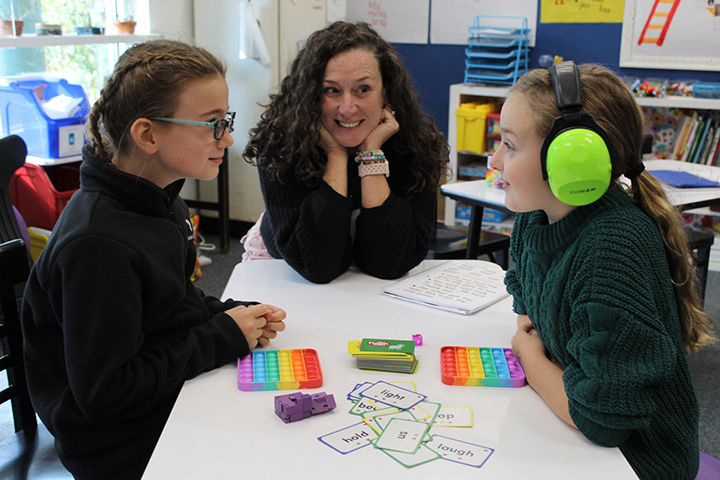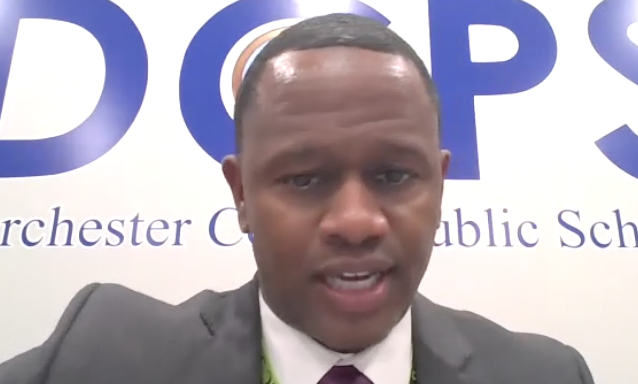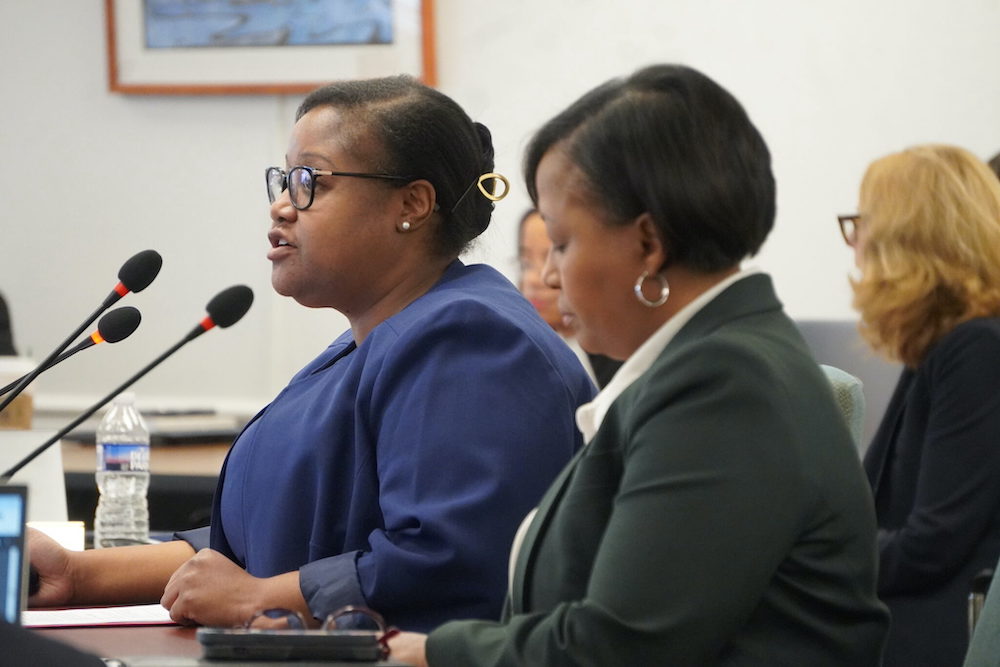Maryland’s 1,303 public schools saw slight gains on the state Department of Education’s annual report card, which rates schools on measures including academic achievement, school quality and progress in English language proficiency.
The report card, released this week, grades schools on a scale of one to five stars, with five stars going to schools that earn a score of at least 75% on a formula that measures overall school performance. The report said 91 schools earned five-star status in the 2023-24 school year, up from 85 schools the year before.
About 41% of schools received a four- or five-star rating last year, compared with 38% in the 2022-23 school year.
Twenty Baltimore County schools earned five stars on this year’s report card, the most of any county. The county’s Eastern Technical High School received the most points in the state with 91, edging out the Academy of Health and Sciences at Prince George’s Community College and its 90.7 points.
Baltimore County Schools Superintendent Myriam Rogers said the county’s broad gains are “are evidence of the effectiveness of the targeted and comprehensive resources and supports we put in place to fast-forward student achievement.”
“We are encouraged by the growth our schools are making on key markers of progress and achievement,” Rogers wrote in a message to the school community. “We will continue to use multiple and frequent measures to evaluate student progress and assess where we need to intensify efforts to meet the needs of our students and bolster achievement.”
Montgomery County, the state’s largest school system, had the second-most five-star schools at 18, and about half of its schools scored either four or five stars. But the school system called the overall performance “disappointingly flat” in a statement, with schools receiving at least three stars increasing by less than 1%.
Approximately nine of Worcester County’s 11 schools received a four-star rating, in which schools scored at least 60 out of 100 points on the grading formula. Ocean City Elementary received five stars and Pocomoke Middle three stars.
“I continue to be in awe of our schools’ positive trajectory in Maryland’s accountability system,” Worcester County Superintendent Louis H. Taylor said in a statement. “Worcester continues to outperform our counterparts across the State, and today’s [Dec. 3] release is just another example of how we are delivering dividends on the investment our community has made in our educational system.”
The state began the star system in 2018 in response to the federal Every Student Succeeds Act. The state released a second report card in 2019, but the reports were suspended in the 2019-20 and 2020-21 school years due to the COVID-19 pandemic.
Although 83% of schools recorded at least three stars in the latest report card, compared with 80% in the previous report card, there could be changes to assess overall performance.
Superintendent Carey Wright announced in April the creation of a task force to assess student achievement after disappointing scores on the Maryland Comprehensive Assessment Program, the state’s standardized tests known as MCAP. At the time of her announcement, only 47% of students in third through eighth grades scored “proficient” in English language arts and nearly 25% in math.

A graphic shows a slight increase in Maryland schools that received a five-star rating, the highest rating available, from 85 schools in the 2022-23 school year to 91 in 2023-24. Graphic courtesy of the Maryland State Department of Education.
With the current MCAP contract set to expire in December 2026, Wright said at Tuesday’s State Board of Education meeting that it’s time to either search for a new assessment vendor, or retain the same vendor “with new requirements.”
“There were a lot of questions that were being raised about the assessment itself,” Wright said. “I’m a firm believer in accountability, always have been. This task force moved with a great deal of speed to get this done.”
The task force presented a report Tuesday with options that include revising the current ratings system, creating a system that meets federal requirements and reflects state priorities, and refining the framework on career and college readiness, which is one of the priorities in the Blueprint for Maryland’s Future education reform plan.
“We reject the theory of action that simply reporting information and hoping that people make good decisions is complete,” said Chris Domaleski, the task force facilitator and associate director of the National Center for the Improvement of Educational Assessment based in New Hampshire. “We think a more appropriate theory of action is that these systems integrate with the kinds of treatments that change curriculum, instruction and support that really uplift students in the state.”
The board voted to accept the report and continue to review it and assess any possible future changes.
by William J. Ford, Maryland Matters
December 5, 2024
Maryland Matters is part of States Newsroom, a nonprofit news network supported by grants and a coalition of donors as a 501c(3) public charity. Maryland Matters maintains editorial independence. Contact Editor Steve Crane for questions: [email protected]. Follow Maryland Matters on Facebook and X.














 “In the Easton library’s STEAM camp, volunteer youth leaders Vivi Morris, Van Tran and Mia Mazzeo, who created the program, blended artistic expression with analytical skills to make learning fun,” said Easton Library Youth Coordinator Laura Powell. “The children who participated learned to collaborate across various disciplines, nurturing both their logical reasoning and creative potential.”
“In the Easton library’s STEAM camp, volunteer youth leaders Vivi Morris, Van Tran and Mia Mazzeo, who created the program, blended artistic expression with analytical skills to make learning fun,” said Easton Library Youth Coordinator Laura Powell. “The children who participated learned to collaborate across various disciplines, nurturing both their logical reasoning and creative potential.”
 Vivi Morris agreed. “The collaboration and teamwork was so ‘chill’,” she said. “By the end of each week, we saw a community of learners, helping each other, enjoying each other’s company, and being so excited as each group completed their activities and projects.”
Vivi Morris agreed. “The collaboration and teamwork was so ‘chill’,” she said. “By the end of each week, we saw a community of learners, helping each other, enjoying each other’s company, and being so excited as each group completed their activities and projects.”